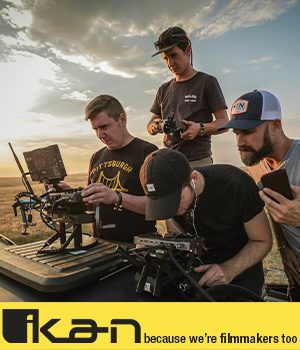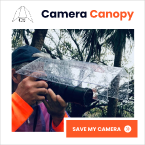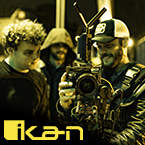- Forum
- Photography and Camera Forum
- Taking the Photo | Editing | The art of Photography!
- Beginner Photography Forum
- Anyone can take a picture
Anyone can take a picture
-
 Topic Author
Topic Author
- JudyK
- New Kid On The Block
-
- Canon Rebel XT 350 D
- Followers: 2
- Posts: 44
-
Points:
0
Post #277386
I clicked on the link for suggested books only to find that it took me to a list containing books, not book, singular but plural, and I have no idea which one to buy.
Can anyone recommend a good book for a beginner who needs things defined in everyday language?
Am I the only one who feels like this?
-
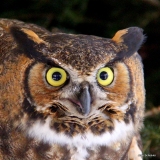
- Baydream
- Moderator
-
- Canoni/60D/70D/5DmkIII
- Followers: 388
- Posts: 11185
-
Points:
7278
Post #277388
www.adorama.com/alc/category/AdoramaTV
Bryan Peterson books are always a good read. You we see some of his videos at the site above.
You may also look for a Camera Club in your area. They can be a great source of information, workshops, etc.
Shoot, learn and share. It will make you a better photographer.
fineartamerica.com/profiles/john-g-schickler.html?tab=artwork
-
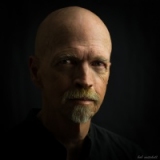
- hghlndr6
- Master of the Lens
- Nikon: P510, D600, D7100
- Followers: 1222
- Posts: 1650
-
Points:
28119
Post #277389
I'll recommend Bryan peterson's "Understanding Photography Field Guide."
Chapter 2 = Exposure
Chapter 3 = Aperture
Chapter 4 = Shutter Speed & ISO.
And the rest of the book is full of useful stuff. I like Bryan; he still uses some old school ideas.
www.amazon.com/Bryan-Petersons-Understan...derstanding+exposure
-
 Topic Author
Topic Author
- JudyK
- New Kid On The Block
-
- Canon Rebel XT 350 D
- Followers: 2
- Posts: 44
-
Points:
0
-
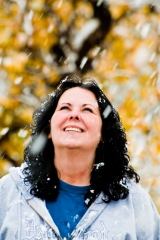
- Pixelchix
- Snapobsessed
-
- Nikon D300
- Followers: 51
- Posts: 449
-
Points:
20
-
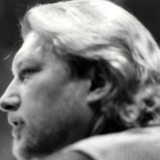
- Rob pix4u2
- Photo Guru
- Nikon N90s & FE film & D90 and D90 digital bodies
- Followers: 196
- Posts: 4204
-
Points:
30
Post #277433
ISO is sensitivity to light. and works with the principle that higher numbers are increased light sensitivity over lower numbers. This works in combination with aperture to produce a well exposed image- one that isn't too light (overexposed) or too dark (underexposed)
Remember to engage brain before putting mouth in gear
Rob Huelsman Sr.
My Facebook www.facebook.com/ImaginACTIONPhotography
-
 Topic Author
Topic Author
- JudyK
- New Kid On The Block
-
- Canon Rebel XT 350 D
- Followers: 2
- Posts: 44
-
Points:
0
-
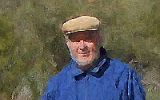
- KCook
- Photo Elder
-
- Canon EOS 50D and Olympus E-P5
- Followers: 1325
- Posts: 5410
-
Points:
32913
Post #277452
Back in the days of film there were very rigorous rules about the selection of ISO. Many of today's authors continue that tradition. But digital (versus film) does make a difference. ISO selection is no longer so critical. So while the principles of ISO still apply, we need not stress over them like we used to.
Kelly
Post #277469
I'm a longtime film photographer and what was easier in a way when I learned was not having the internet - there seems to be a lot of less than accurate info. online and hopefully you won't have to unlearn things as you go. But what might have been more challenging in the past was learning thru a lot of trial and error - I think I just got out with my camera and figured things out (and spent time back at the camera shop asking questions).
Kelly is right about the ISO being a variable with a digital camera - it stands for International Standards Organization and defines a standardized way of measuring light sensitivity. When I'm using a film camera the ISO is determined by what speed film I put in the camera, and I use the same setting as a starting point when using my digital camera - 100 or 200 ISO outdoors, 400 indoors (or possibly outdoors if overcast) - then I raise the ISO as needed in lower/less light.
Rob gave a good description in how the aperture works. The f stops are fractions - f8 is 1/8 the focal length of the lens. As you go to f2 and open the lens more your aperture or lens opening is the size of 1/2 the focal length; f16 is only 1/16 of the length. If you look into a lens you may be able to see the blades open and close and see the size of the aperture change. I usually set my cameras at f8 as a midrange starting point.
The shutter speed is also measured in fractions - my starting point is 1/125 which is where I usually set it using cameras hand-held to keep a sharp image. It's adjusted so as the shutter moves slower, such as 1/60th of a second, it lets in more light; as it moves faster such as 1/500th of a sec. it lets in less light.
I use the meter to tell me how to adjust my camera. If it's showing there isn't enough or there's too much light, I need to adjust the aperture or shutter speed or ISO or some combination of those, to get an accurate exposure (with film I only change two of those settings unless I change film midroll). That's what probably will take time to learn.
Also I think it takes time to learn about the elements of composition and figure out how to use those concepts in taking photos, as well as figuring out how to get in your viewfinder what you want in your photo.
Sharon
Post #277480
-

- Tuscan Muse
- Agent
-
- Nikon
- Followers: 128
- Posts: 8240
-
Points:
2
Post #277486
"How do you eat an elephant? One bite at a time!"
Thank you for the book recommendations. Headed to Amazon now.
-
 Topic Author
Topic Author
- JudyK
- New Kid On The Block
-
- Canon Rebel XT 350 D
- Followers: 2
- Posts: 44
-
Points:
0
-
 Topic Author
Topic Author
- JudyK
- New Kid On The Block
-
- Canon Rebel XT 350 D
- Followers: 2
- Posts: 44
-
Points:
0
-
 Pt+
Pt+ - stuartsbarbie
- Photography Hooked
-
- Cannon 6d
- Followers: 568
- Posts: 519
-
Points:
2004
Post #416805
Hope this helps and welcome to the jungle.
-
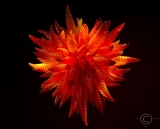
- John Landolfi
- Super User
-
- Nikon D3S, D7100, Sony RX10, Canon G11, F4s, F2sb, RetinaflexIV etc, etc
- Followers: 1205
- Posts: 21605
-
Points:
40394
- Forum
- Photography and Camera Forum
- Taking the Photo | Editing | The art of Photography!
- Beginner Photography Forum
- Anyone can take a picture
Latest Reviews
The Canon EOS R100 is an entry-level mirrorless camera introduced in 2023. But just because it’s an entry-level camera doesn’t mean it’s a bare-bones camera. Find out why in this review!
Nikon’s retro-looking Nikon Zfc is anything but retro. Under its classic body is a host of features and amenities that make it a worthwhile compact mirrorless camera for 2024.
The Canon EOS R50 is one of the newest R-system cameras from Canon. Is it worth your money? Find out all the details you need to know in this comprehensive review.
The Sony FE 70-200mm f/2.8 GM OSS II is Sony’s flagship mirrorless zoom lens. As such, it’s loaded with features and has a top-shelf build quality that makes it a top pick!
Latest Articles
The Insta360 has one of the best lineups of action cams and 360-degree cameras. With these Insta360 accessories, you can elevate your photography and videography game!
Creating impactful photos of landscapes depends on many factors, not the least of which is your talent behind the lens. This guide explores other elements required for the best product.
The Canon EOS R100 is an entry-level mirrorless camera introduced in 2023. But just because it’s an entry-level camera doesn’t mean it’s a bare-bones camera. Find out why in this review!
Are you ready to upgrade your camera? Before buying new, you might consider the value of purchasing used gear to save money.
The Olympus OM-D E-M10 Mark IV is a micro four thirds camera released in 2020. It’s an entry-level system along with the OM-D E-M5 Mark III. Use this guide to determine which one is best for you!
Blue hour photography might not be as well known as golden hour photography, but it is every bit as good a time to create epic images of landscapes. Learn how in this quick tutorial!
Nikon’s retro-looking Nikon Zfc is anything but retro. Under its classic body is a host of features and amenities that make it a worthwhile compact mirrorless camera for 2024.
Moving from taking snapshots of your dog to creating beautiful images doesn’t have to be that difficult! Use the tips outlined in this dog photography guide, and you’ll get better results in no time.












